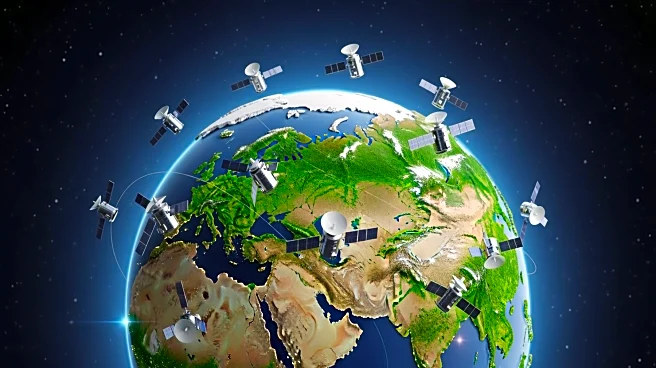What's Happening?
The Trump administration has directed NASA to develop plans to terminate two major satellite missions that are crucial for monitoring greenhouse gases. These missions, known as the Orbiting Carbon Observatories, provide essential data used by scientists, oil and gas companies, and farmers to track carbon dioxide levels and crop health. Despite the high quality of data and the state-of-the-art equipment, the administration's proposed budget for FY 2026 suggests cutting funding for these missions. NASA employees are currently working on Phase F plans, which outline options for terminating these missions. The standalone satellite would burn up in the atmosphere if the termination plans proceed.
AD
Why It's Important?
The potential termination of these satellite missions could significantly impair the ability to forecast and respond to severe weather and climate disasters. The data collected by these satellites is vital for understanding global carbon dioxide levels and plant growth, which are crucial for climate science and agricultural planning. The missions have already received Congressional funding through the end of FY 2025, but their future remains uncertain. The termination could also affect national security, as crop failures linked to climate change can drive mass migration and political instability.
What's Next?
Congressional Democrats have urged NASA not to terminate missions that have been funded by Congress, arguing that the administration's budget cuts are illegal. NASA is considering proposals from private companies and universities to take over the cost of maintaining the satellite attached to the International Space Station. The future of these missions will depend on Congressional budget decisions and potential privatization efforts.
Beyond the Headlines
The move to privatize NASA science missions raises questions about the role of private sector involvement in Earth observations. While private companies are increasingly launching satellites to monitor greenhouse gases, these efforts rely on foundational public funding. The termination of NASA's missions could shift the balance of climate data collection to private entities, potentially affecting the accessibility and reliability of this information.










